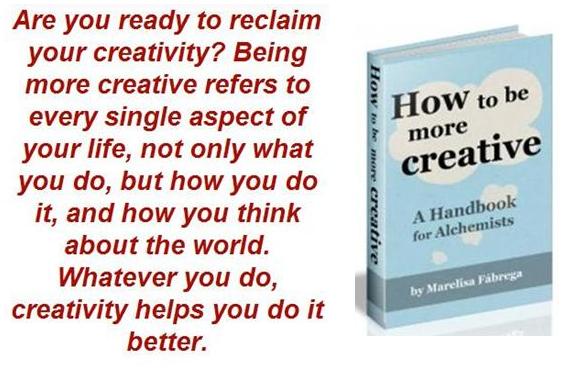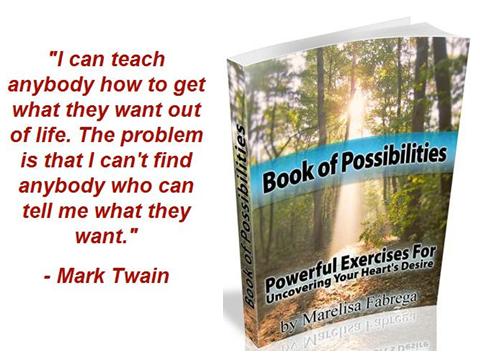 The amount of willpower or self-control that you have is one of the best predictors of how successful you’ll be.
The amount of willpower or self-control that you have is one of the best predictors of how successful you’ll be.
If you have poor self-control you probably overspend, overeat, and procrastinate. On the other hand, if you have high levels of self-control you probably follow a healthy diet, exercise, save, and are good at getting things done.
Fortunately, if you’re currently lacking in willpower and self-control, there are strategies that you can apply in order to help you solve this problem. One of these strategies is reward substitution, which is explained below.
Reward Substitution Explained
Dan Ariely is a professor of psychology and behavioral economics at Duke University. Ariely explains in a TED Talk which he gave at Duke that the problem of self-control is the following:
We have all of these desires for ourselves in the long-term—we want to be fit, financially secure, successful, and so on—but in the short-term we fail to take the action that will lead us to those results.
When he was in high school, Ariely had a serious accident which landed him in the hospital. While he was in the hospital, he got Hepatitis C–and liver disease as a consequence–from a bad blood transfusion. About seven years after he left the hospital, his liver started giving him problems, so he sought medical advice.
Ariely’s doctor told him that the FDA was running a clinical trial to see if a drug called interferon could help cure Hepatitis C. He advised Ariely that if he didn’t join the trial there was a good chance that he would die from liver cirrhosis in the future.
The treatment that Ariely’s doctors wanted him to take consisted of the following: he had to inject himself three times a week for a year-and-a-half. If he did this, there was a chance that he might not get liver cirrhosis thirty years down the road. However, each time he injected himself he would get headaches and feel nauseous for the next sixteen hours.
In other words, the scenario was the following:
- Feeling sick for sixteen hours each time he injected himself was unpleasant, although not as unpleasant as getting liver cirrhosis thirty years later.
- However, getting sick after injecting himself was not just unpleasant; it was also immediate.
- The possibility of getting liver cirrhosis was thirty years in the future.
Ariely explains that when making the decision between doing something now which is unpleasant, but which will have positive effects in the long-term future, or avoiding the discomfort in the present, we often over-focus on the present and sacrifice the future.
So, how was Ariely able to inject himself three times a week, for a year-and-a-half, even though he felt sick for hours every time he injected himself? He stopped focusing on the long-term reward of not getting liver cirrhosis. That reward was too far off is the future to make him willing to put up with discomfort in the present.
Instead, in the mornings on the days in which Ariely had to inject himself, he would go to the video store and check out a few movies. Watching movies is something that he loves to do. So he would walk around all day with the movies in his backpack looking forward to watching them. Then, when he got home in the evening he would inject himself and pop in a movie.
Ariely created a reward substitution. The reward of not getting liver cirrhosis was too far away in the future to motivate him to act in the present moment. People are just not designed to care very much about delayed rewards. Therefore, what he did instead was to focus on the immediate reward of watching movies.
How to Implement Reward Substitution in Your Own Life
A blog post I wrote a short while ago got over 25,000 views in one day. It was a post on how to slow down aging and live longer. Obviously, living longer lives with fewer years of disability is something that we all want.
One of the most important things you can do in order to live a longer, healthier life is to do some sort of cardio exercise for 30 minutes, five days a week. However, for most of us, exercising involves at least some degree of discomfort and unpleasantness. While you’re exercising you’re tired, you’re sweaty, and you have to exert yourself for the amount of time you’re exercising.
When you get home from work each day you have the following options:
- Kick off your shoes, lie down on the couch, and get the immediate reward of relaxation; or
- Put on your t-shirt, sweatpants, and sneakers, and go out for a thirty minute jog, so that your chances of having a heart attack or a stroke thirty years from now are greatly reduced.
The reward of longevity is just too far off in the future to prevent you from lying down on the couch and taking it easy. Therefore, you need to find a reward substitute. You can try the following:
- Right before your jog, prepare everything that you’ll need to make your favorite smoothie, and put it all in the fridge so that you can make the smoothie as soon as you get home after your jog.
- Make a date with your spouse or your roommate to watch a TV show that you both love when you get back from your jog.
Find a compelling reward that you can give yourself in the present to focus on, in order to get yourself to take the action that will get you a much larger reward further down the road. Ask yourself:
- What long-terms goals do I want to achieve?
- What actions do I need to take on a regular basis to achieve those goals which are likely to cause discomfort or some unpleasantness?
- What reward substitutes can I use to reward myself immediately, instead of trying to focus on a reward that is so far off in the future that it won’t motivate me to act now?
Conclusion
Think of a large object that’s right next to you. Then it starts to move away. As it moves away, it looks smaller and smaller. Soon, all you can see is a tiny speck. Large rewards that are far off in the future look like tiny specks in the present. And it’s very hard to get motivated by those tiny specks.
Instead, choose to focus on rewards which—although much smaller than the ultimate reward that you’re striving for—look much bigger in the present because you can have them right now. Live your best life by increasing your willpower and self-control with reward substitution.



Related Posts:
- 12 Tips for Defeating Procrastination and Gearing Up for Action
- Stop Procrastinating Tip: Practice Discomfort
- Five Scientifically-Proven Ways to Strengthen Your Self-Control
- Strengthening Your Willpower: Four Ways to Listen to The Angel On Your Shoulder
Did you enjoy this article? Subscribe to “Daring to Live Fully” by RSS or by email, and get free updates.








 Marelisa Fabrega is a lawyer and entrepreneur. She holds a Bachelor of Science in Business Administration from Georgetown University in Washington, D.C., as well as a Juris Doctor from the Georgetown University Law Center. You can learn more about her
Marelisa Fabrega is a lawyer and entrepreneur. She holds a Bachelor of Science in Business Administration from Georgetown University in Washington, D.C., as well as a Juris Doctor from the Georgetown University Law Center. You can learn more about her 






Comments on this entry are closed.
Hi Marelisa, I love your blog because its very positive, informative and well presented. I have been a “follower” for a while and therefore feel I should start to make a contribution and some “pay-back” in the form of feedback. Feedback being the breakfast of champions so I regard as a gift but like all gifts it is how well it is wrapped that makes the intention pure.
Also it is respectful to ask permission before giving feedback as then it is received as positively intended. May I assume permission please :-).
I love the concept of “Reward Substitution” and it interesting approach to a short term strategy to building “stickiness” to a commitment that has long term rather than immediate benefits, as I read recently that over 70% of people on life saving drug programs fail to follow through. Sorry source is not in my head now :-). The more interesting recent study is the possible negative relationship between exercise and snacking see http://link.springer.com/article/10.1007%2Fs11002-014-9301-6! Werle, Wansink & Payne (1014). Message is, I guess, we need to have a healthy “Reward Substitutes” as well as Re-framing the event/activity as “Fun” over “Burden”. There it is I hope it’s received as intended–a token of appreciation and gratitude. Go well and forever positively, Denis
Thanks for sharing it. Today’s every person wants to increase our willpower because nowadays there are many work to everyone and they have no time for taking proper diet.
Hi Denis:
I definitely appreciate input.
It is much easier to carry out an activity if it’s fun for you. So if you hate jogging, but you love to dance, it would be much easier for you to exercise if you join a dance class instead of trying to force yourself to jog. However, for me “making it fun” is yet another strategy for bolstering willpower. I believe in a multi-layer approach: use many different strategies at once. This particular post is simply about reward substitution.
I do see your point that if you don’t enjoy exercise you’re more likely to overindulge in snacks afterwards since you feel you deserve it. In fact, I’ve been guilty of doing this in the past. You need to keep in mind that you have to make healthy food choices even if you’re getting exercise. Therefore, I now try to reward myself with snacks that are both healthy and delicious.
Regards,
Marelisa
Hi Brom: There’s more temptation now then ever, so I agree with you that bolstering willpower is very important.